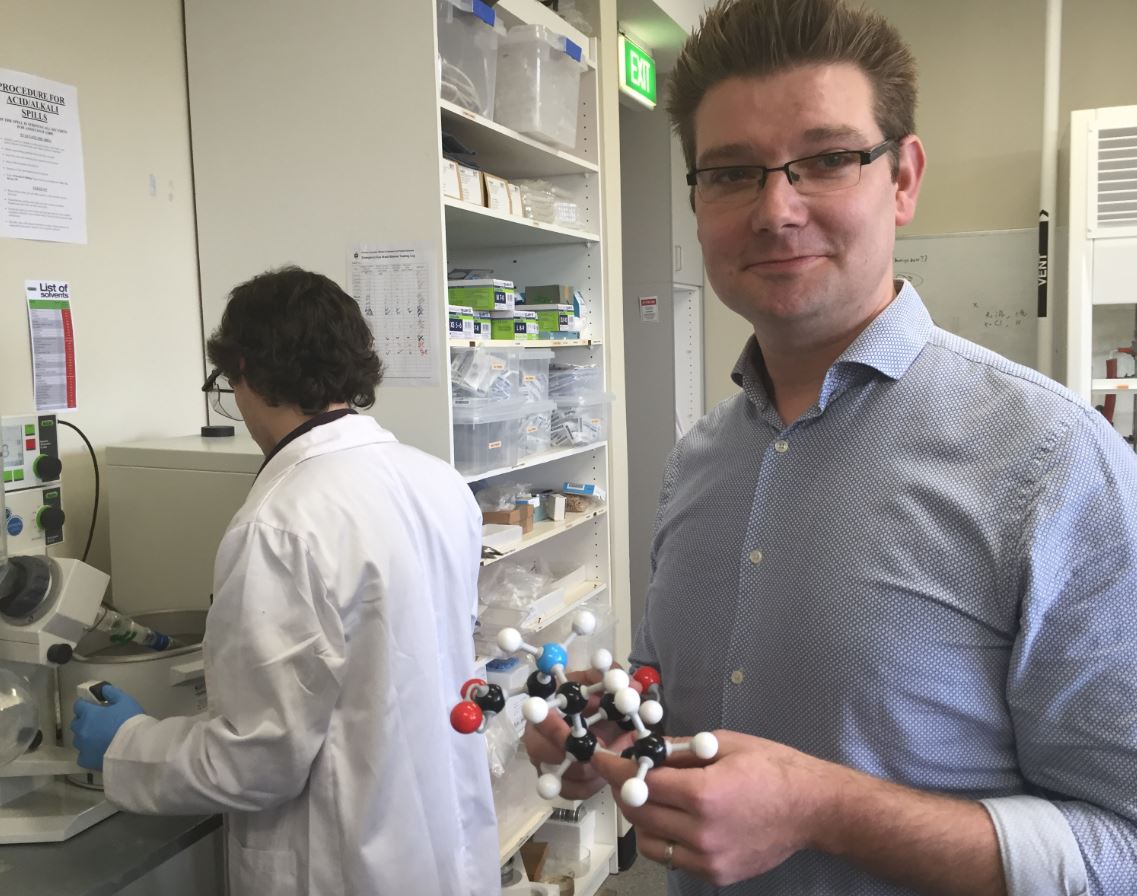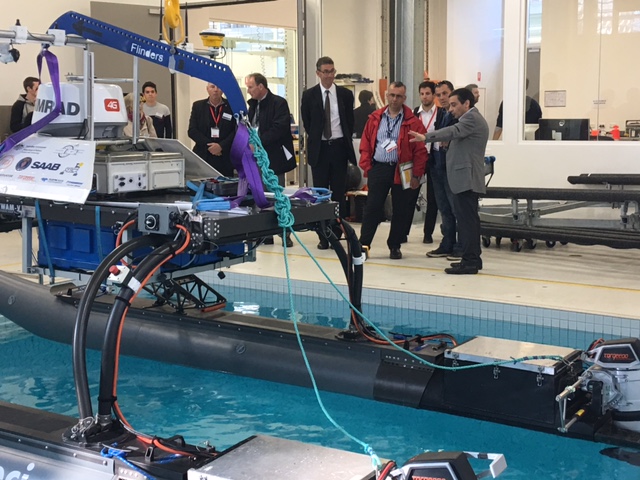
A bid to remove dangerous contaminants from water and innovative research into better high-tech unmanned surface vessels are new projects starting at Flinders University.
The two $150,000 grants led by Flinders are among the inaugural South Australian Defence Innovation Partnership Collaborative Research projects announced by the Premier Steven Marshall under a $600,000 program to conduct collaborative defence research activities with local and international partners.
The funding will support four projects, which were selected from a pool of high-quality applications and cover a range of areas of interest to the Australian Department of Defence.
The Premier Mr Marshall says the projects will provide the opportunity to develop ground-breaking technology in South Australia, demonstrating our state’s research strengths.
“These research projects will see some of the best researchers in the world teaming up to develop technology that will have broad applications for defence,” Mr Marshall said.
“Defence research and development is a key priority for South Australia’s broader defence strategy, and is critical to ensure that we maximise the full extent of the Turnbull Coalition Government’s $200 billion defence capability buildup.”
The Defence Innovation Partnership aims to foster collaboration between national agencies, such as Defence Science and Technology (DST), industry, South Australian universities and the SA Government.

Flinders University Senior Lecturer in Synthetic Chemistry Dr Justin Chalker will lead the ‘Economical technologies for the detection and remediation of water contaminated with perfluorinated substances,’ with support from expertise at DST Group, UniSA, Puratap and the University of Newcastle.
Dr Chalker, from the Institute for NanoScale Science and Technology at the College of Science and Engineering, says the one-year project will conduct field testing near the RAAF Base at Edinburth and other sites in SA that may be affected by the potentially dangerous substances including Perflorinated Alkyl Substances (PFAS).
“We are looking at novel strategies and materials to remediate wetlands, groundwater and surface water and also develop high-performance filters for domestic use,” says Dr Chalker, adding Puratap water filtering technology will be used in the experiments.
“This will feature research into remote, on-site monitoring technology and new sorbents that work in diverse environments.
“We will be working with Defence authorities to facilitate trials, so this is an exciting opportunity to trap PFAS and prevent further contamination.”
The Australian Department of Defence has been involved in investigating the potential risk of PFAS chemical used in aviation firefighting foams at airbases.
Dr Chalker says the project will monitor groundwater, table water and tap water, to find a swift and economical way to identify PFAS chemicals and then remove them from affected sources.
The second project, entitled ‘Developing autonomous sea-keeping capability for unmanned surface vessels’, will be led by Associate Professor Karl Sammut, director of the Centre for Maritime Engineering, Control and Imaging at Flinders at Tonsley.
Flinders, with partners at DST, University of Adelaide and Acacia Research, will work on improved sensor and other autonomous features of unmanned vessels, which are increasingly being deployed for maritime surveying and surveillance in the marine engineering, military defence, mineral exploration, environmental and fisheries sectors.
The goal is to develop surface and autonomous underwater vehicles (AUVs) that are self-contained, robust, affordable and intelligent decision-making robots in a range of environmental settings.
Flinders University Psychology Professor Mike Nicholls is also a partner in a third Defence Innovation Partnership project entitled ‘Realising the benefit of augmented reality devices in military applications.’

